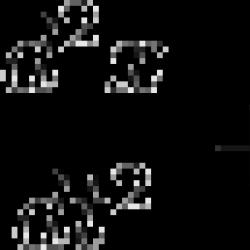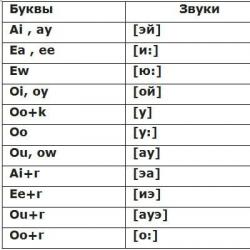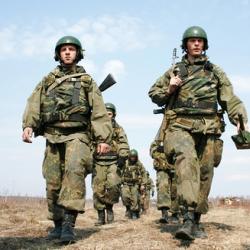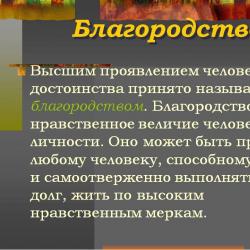An unstressed suffix in an indefinite form. Vowels in the infinitive (indefinite form) are before -т. Spelling adjective suffixes
Help 80 points
1. From the text, write down a verb in which the spelling of the unstressed suffix is determined by the final vowel of the stem of the indefinite form:
Sherstnev was not offended: old Vishnev was known in the detachment, he helped detain more than one violator, and he was one of the first to be awarded a border medal. (Rudov V.)
2. From the text, write down a verb in which the spelling of the unstressed suffix is determined by the final vowel of the stem of the indefinite form:
One day I approached a doe with a fawn, but they sensed me and ran away into the red autumn grasses. I recognized this from the tracks: the tracks in the swamp were filling with water before my eyes. (Snegirev G.)
3. From the sentence, write down a verb in which the spelling of the unstressed suffix is determined by the final vowel of the stem of the indefinite form:
It was a large room, hung with colorful flags and garlands, which we cut and glued ourselves. (Rekemchuk A.)
4. From the text, write down a verb in which the spelling of the unstressed suffix is determined by the final vowel of the stem of the indefinite form:
The month, almost full, floated quietly over the sea. In its light the ship seemed large and ghostly; The lights on the masts turned deathly yellow, the stars melted coldly in the sky. (Sokolov-Mikitov I.)
5. From the sentence, write down a verb in which the spelling of the unstressed suffix is determined by the final vowel of the stem of the indefinite form:
The bell rang piercingly, and immediately the school began to shake - the corridors were filled with children's screams and the clatter of many feet. (Rudov V.)
6. From the text, write down a verb in which the spelling of the unstressed suffix is determined by the final vowel of the stem of the indefinite form:
The lieutenant, naturally, was worried about his subordinate, he insured him as best he could, mentally thanked him for the daring attack and hoped that from minute to minute the intruders would stop resisting - after all, there was no way to retreat. (Rudov V.)
7. From the text, write down a verb in which the spelling of the unstressed suffix is determined by the final vowel of the stem of the indefinite form:
Surov estimated that the group would reach the trail in ten to fifteen minutes, not earlier, and if by that time Sherstnev had not detained the stranger, then they would have to launch a search over a large area covered with forest, bushes, cut up by drainage ditches and collapsed trenches of the last war. And this is very difficult. Everything now depended on Sherstnev. (Rudov V.)
8. From the text, write down a verb in which the spelling of the unstressed suffix is determined by the final vowel of the stem of the indefinite form:
Only towards night, after sunset, George came. In his net, a small gray lump lay one hazel grouse. It was obvious that the guy was tired and worn out. (Savin V.)
9. From the text, write down a verb in which the spelling of the unstressed suffix is determined by the final vowel of the stem of the indefinite form:
Genka, stunned, widened his eyes in shock. All the guys looked at Misha, dumbfounded. (Rybakov A.)
10. From the text, write down a verb in which the spelling of the unstressed suffix is determined by the final vowel of the stem of the indefinite form:
In any case, the menacing clouds hanging over the family life of Gray Owl completely dissipated on that significant evening. The couple still worked hard at the fishery, but when they returned home, they stopped all conversation about their profession. (Prishvin M.)
Verb spelling is not as easy a topic as it seems at first glance, and many people understand this. Vowels and consonants in the root, endings, prefixes - all this requires special attention. Suffixes in the indefinite are also far from being so simple. Conjugation, type of verb - they are influenced by very, very many things. But you can easily cope with this, if you have the desire. Let's try to understand what exactly the spelling of verb suffixes depends on, and what kind of suffixes they are in general.
Basics
Any Russian language lesson “Indefinite form of the verb” would begin with a definition of the corresponding concept. The infinitive (and this is what it is called scientifically) is the initial, zero form, given in dictionaries and not having any morphological characteristics. So, it lacks the indefinite form of the verb: tense, person, number and mood, but it has the perfect ( answer) or imperfect ( reply) view; category of pledge - real ( pronounce) and passive ( must be pronounced); recurrence ( turn out to be) and irrevocability ( run). This word form answers the questions what to do? And what to do? And one of its main features are suffixes in the infinitive form of the verb: - whoa, whoa-. Some linguists identify suffixes such as - there is- And - sti-.
How do you understand that this is an infinitive?
We seem to have sorted out the definition. What's next? What is the form of the verb? Is it possible to somehow understand that this is an infinitive and not something else? Easily! We take the verb we need, for example, read, and look at it (those parts of the word from which it consists). In this case there is our suffix - t-, in addition, we ask a question about the verb: read - what to do? And the second sign matches. To be completely sure, you can try to determine the person, number and time - and this is impossible. But the view ( what to do?- imperfect), reflexivity (no postfix -sya- - and pledge ( read- I do it myself - valid) are found without difficulty.

Another example is the verb blinking. There is no suffix we need here, and when we try to ask a question, it answers what am I doing?- again not what we need. It is already clear that in this example there is also a face (I blinking- first), and number (singular), and tense (present), as well as aspect (imperfect), and recurrence (irrevocable), and pledge (active). That is, this word form is not an infinitive.
Before determining the infinitive form of a verb, you need to check it for the presence of basic morphological features. If they are not there, great, we have an infinitive, but if there is person, number and tense, then this is simply an inflected form of the verb.
Does it end with an infinitive?
Another very difficult issue for many is the spelling of verb endings, which depends on the conjugation. It’s not a very easy question - first determine what conjugation the verb belongs to, and to do this you need to put the verb in our indefinite form, see what it ends in, based on this, if possible, decide on the conjugation and only then put the ending in personal form of the verb. With the infinitive everything is much simpler.

The endings of verbs in the indefinite form is a topic that does not exist. Now many will frown in confusion: after all, somehow we define the same conjugation, we are looking at the ending for this? No no and one more time no. That same vowel before infinitive suffixes is another suffix, although some linguists define it as an ending. Mandatory for memorization: since there are no morphological features, then there cannot be endings for verbs in an indefinite form. The infinitive is characterized by the presence of only suffixes.
Suffix, not ending
Let's return to final, infinitive-defining suffixes. What determines which one is correct for the verb? Of course, for a native Russian speaker this is not a problem at all - we intuitively feel what to use, but for those who study the great and mighty as a foreign language, such a choice can be very difficult.

Suffix - you- usually under stress ( carry, carry), and it also occurs in words derived from these, when a prefix appears in them that pulls the emphasis ( TAKE OUT, TAKE OUT) - most often this is a prefix - You-.
-t- in turn occurs where there is no accent ( talk, laugh).
Availability - there is- And - sti- typical for verbs whose stem ends in - d, t- (I will fall - fall, weave - weave), the second suffix also exists in verbs whose personal form ends in - b- (row - row).
Of course, there are a number of cases where suffixes in the indefinite form of the verb do not obey the basic rules, for example, swear - swear, grow - grow, but in this situation we can say that these verbs are peculiar exceptions, so that, no matter how sad it may be, they need to be remembered.
Making the task more difficult
In general, consider only the standard ones - t, tee, whose, sti, is- as suffixes in the infinitive form of the verb, speaking about the spelling of this part of speech, it is not very correct. There are also suffixes - ova, eva- And - willow, yva-, the choice of which is also associated with certain difficulties. They occur in words such as, for example, confess, talk, lay down and so on.

Spelling in this case requires placing this very verb in the first person singular (this is what corresponds to the pronoun I). If the required form ends with - wow, wow-, then you should select the suffixes - ova/eva- (pursue-pursue, fight-fight), if on - yay, yay-, then the suffixes will go - willow, yva- (I bury-bury, I insist-insist).
Now let's complicate things a little more
We can continue the topic of spelling suffixes with another interesting rule. Those verbs that end in stressed - wat-, retain the same vowel before the suffix in the infinitive without this ending that comes before this suffix in the conjugated form of the verb ( pour-fill).
In addition, there are interesting words that do not quite follow the general rule. In the indefinite form of the verb, a compound suffix is written in them - go crazy-: to become numb, to become dumbfounded and so on.
A bit of a nightmare
Another “favorite” topic for almost all schoolchildren is spelling the suffix before - t, tee, whose, sti, is-, on which the choice of verb conjugation usually depends. Of course, sometimes it is obvious, but sometimes, in words like glue, everything is not as simple as we would like.
In this case, you will have to delve deeper into conjugations. As you know, verbs have a first and a second conjugation. Both of them influence the choice of ending in personal forms of the verb. The problem is that sometimes the ending in the personal form is obvious, but what to write before the infinitive suffix is not always clear. In this case, we take the controversial verb and begin to conjugate it. If the endings in the conjugated forms correspond to the endings of the first conjugation ( -Yu, -eat, -eat, -eat, -eat, -yut/-ut), then you should write those suffixes by which the first conjugation is determined - - yat, yat-, if the second ( -u, -yu, -ish, -it, -im, -ite, -yat/-at), then, accordingly, -it. For example, the same glue - glue, glue, glue- thus, since they correspond to the endings of the second conjugation, you need to write the suffix of this very second conjugation - it.
Finish line: soft sign in the infinitive
Now let's move on to the last of the particularly important aspects concerning the infinitive. Certain difficulties are caused by a soft sign in the indefinite form of a verb - the hero of a huge number of Internet memes in the style of “the pain of any literate person.” In general, it’s very difficult to say why such a simple topic seems so difficult, but oh well, we’ll figure it out.

Whether it is worth writing a soft sign in the infinitive or not is very easy to determine. We take a verb, preferably in the third person singular (this is what corresponds to pronouns he she it), and ask him a question. If the question what is he doing?, then there will be no soft sign either in this form or in the infinitive ( he studies - what does he do? - studies), if the question what to do?, then, accordingly, the soft sign will appear in both forms ( he wants to study - what to do? - study). Of course, it all depends on the context. As can be seen from the example, the same verb can be written both with and without a soft sign. Shall we try again?
I can not sleep.
Laughing during a serious conversation is stupid.
Why don't we go for a walk?
He is too lazy to go outside again.
He refuses, refusing in this situation is the only way out.
Conclusion
The verb is a multifaceted and complex part of speech; working with it includes a huge number of nuances and little things that should always be taken into account. Verb suffixes are definitely one of the most difficult topics in spelling, but still, if you remember the basic rules, everything will become much easier.

Let us repeat once again everything that was said above. Firstly, infinitives do not have any endings, they are suffixes and nothing more. Its choice depends on the stress (under stress - you-, without him - t-) and from the consonant with which the stem of the verb ends (if - d, t, b-, then, most likely, the infinitive will be endowed with suffixes - sti, is-). Next, about writing suffixes - yva/iva- And - ova/eva-. If a verb in the first person singular ends in - yu/yuyu-, then we write - ova/eva-, if in this form there is - yva/iva-, then we save the corresponding suffix. The real war unfolded over the definition of the consonant preceding the infinitive suffix. Here we determine the conjugation by conjugating the verb, and based on it for the first conjugation with endings - eat, eat, eat, eat, ut/ut- we write - at/yat/et-, if the endings are in the personal form of the verb - ish, it, im, it, at/yat- - choose between - it/it-. And lastly: when the verb answers the question what to do?, we write a soft sign in the infinitive when answering a question what is he doing?, we can do without it.
1. In the indefinite form, verbs most often have the following suffixes: -a- (hear, do); -I- (sow, bark); -e- (to see, to offend); -and- (nursing, nagging).
Remember: 1) the suffix -e- is never written after the vowel letters of the root in the infinitive. In this position, only the suffix -я- or -и- (stand, water, milk) can be stressed. In an unstressed position, the suffix -I- is written in the verbs to win, start, repent, bark, cherish, toil, hope, soar, sow, melt, tea, smell, and the suffix -i- - in the verbs to build, cost, rest, double, triple, glue;
2) after soft consonants (except h) in an unstressed position, the suffix -I- is written in the verbs bow, cough, and the suffix -e- in the verbs see, offend, depend, hate, freeze;
3) in suffixes of past tense verb forms the same vowel is retained as in the infinitive. For example: recover - recovered, bark - barked, glue - glued.
2. Suffixes -yva- (-iva-), -ova- (-eva-).
In verbs with the suffix -ыва- (-iva-) (always unstressed), which have the meaning of an imperfect form (sometimes also of multiple actions), they are written before the letters s or and, for example: roll up, smear, see; overwhelm, talk, jump, hear, twist, beg, insist.
Verbs with the suffix -yva- (-iva-) should be distinguished in writing from verbs with the suffix -ova- (-eva-). Verbs of these two types form the present tense in different ways: verbs in -ovat (-evat) have the 1st person form in -y (-yu) (in the absence of -ov-, -ev-), for example: I’m talking – talking , I manage - to manage, I envy - to envy, I confess - to confess, I preach - to preach, I scourge - to scourge, I grieve - to grieve; for verbs na -yvat (-iva), the 1st person form ends in -yu (-ivayu) (with the preservation of -ыв-, -ив-), for example: I inspect - inspect, deploy - deploy, reconnoiter - reconnoiter, inspect - visit.
3. Vowels before -va-. In imperfective verbs with the suffix -va-, having the 1st person form in -va-yu, unstressed vowels before v are checked according to the general rule, for example: overcome-t (overcome), out-of-date (out-of-date) , wash down (write down), start up (start up), sow (sow), start (start), freeze (freeze), stop ( catch).
However, in the following verbs starting with -va-t (in the 1st person -va-yu), a special suffix -eva- is written with the letter e in place of an unchecked unstressed vowel: eclipse, prolong-t, corrupt (eclipse , extend, corrupt), get stuck, get stuck (get stuck, get stuck); overwhelm, exhort, intend, doubt.
4. -e(t), -i(t). There is a difference between verbs ending in -et and -it. Verbs na -et (in the 1st person -еyu) - intransitive I conjugation - have the meaning 'to become something, to acquire a characteristic', for example: to weaken, to weaken 'to become powerless, to lose strength', to desuffocate, to become severe 'to become severe' . Verbs in -it (in the 1st person and absent) - transitive II conjugations - have the meaning 'to make something, to endow with a characteristic', for example: to weaken, to weaken 'to make someone powerless, to deprive someone of strength', to anesthetize, to neutralize , despirit, weaken. Compare the same suffixes under stress in verbs like (by) whiteness and (by) whiteness, (about) weakness, (time) fun.
5. -ene(t), – eni(t). The acquisition of some attribute, the transition to another state is also expressed in intransitive verbs of the first conjugation in -ene-t, in which the unstressed vowel before n is conveyed by the letter e: freeze, ossify, stiffen, numb, travenet, torfen, bloody, glazed, frenzied , dumbfounded, numb. Correlative transitive verbs of the second conjugation in -eni-t, denoting endowment with a characteristic, are also written with the letter e: chill, numb, ossify, bloody, frenzied, numb, etc. The spelling of verbs in -enet and -enit does not agree with the spelling of the corresponding relative adjectives in which (if any) the letter i is written in the suffix before n: ice, bone, blood, grass, wood, etc.






